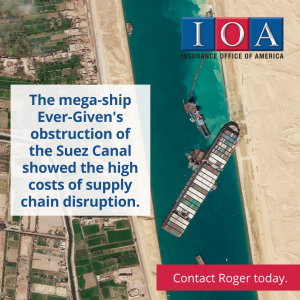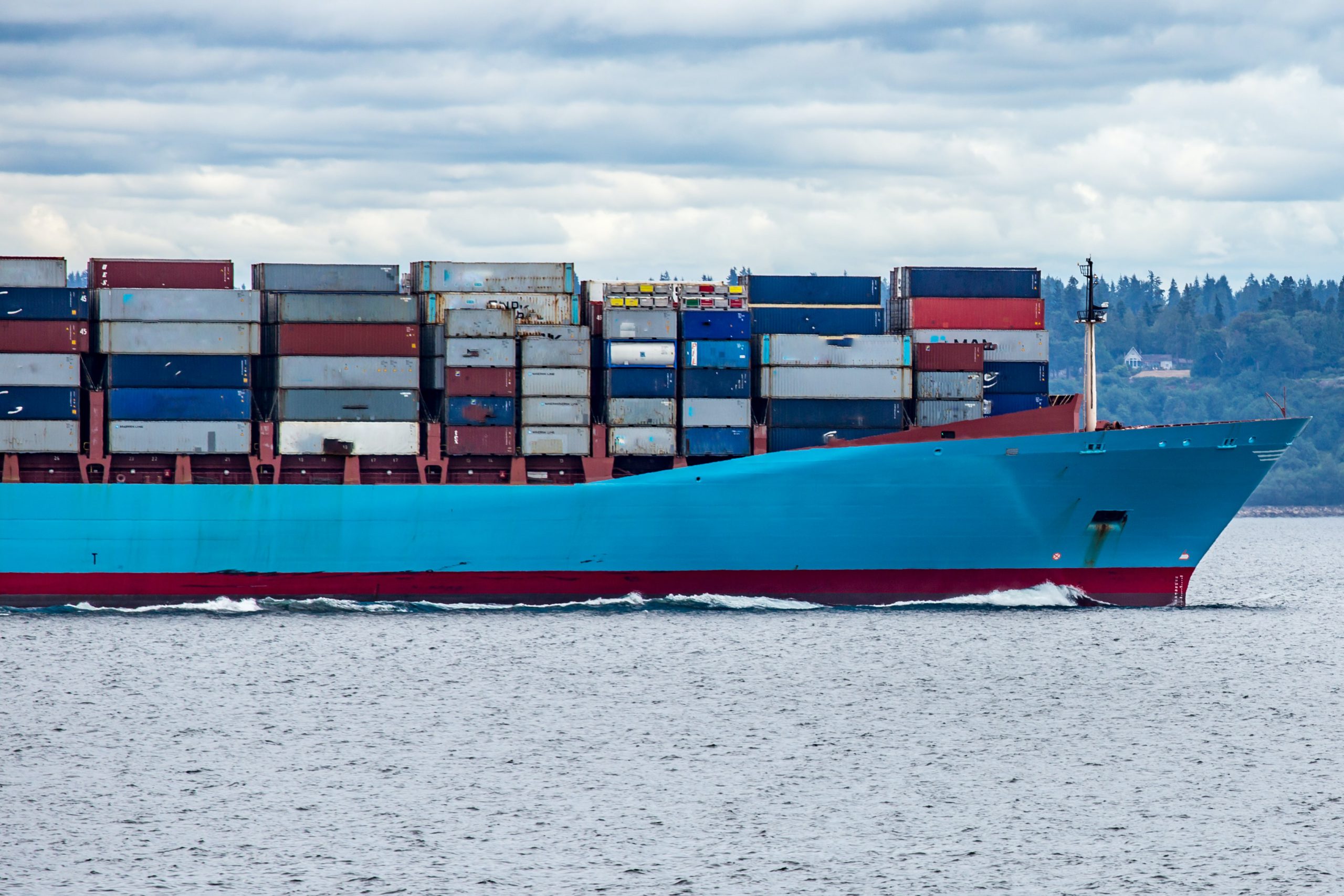Business owners today are well aware of modern supply routes and the immense risks they carry. As globalization of business increases, so too does the risk that goods being transported from one side of the world to the other will be hindered somewhere along the route. Once delays happen, costs increase. That’s Business 101. The larger question is whether supply chain risk management can stem the tide of these rising costs for businesses.
Supply chain risks are not uncommon. Deloitte found that over 80% of businesses surveyed had experienced at least one supply chain disruption in the past year. The chances of this type of impact on your business are simply too great to ignore.
Supply Chain Disruption Examples
Before we talk about supply chain risk management, let’s look at some supply chain disruption examples. Perhaps the best example is that of the mega-ship Ever-Given, which found itself stuck on the banks of the Suez Canal in March 2021, rendering the canal impassable to other ships.
The events that unfolded quickly impacted businesses worldwide:
1. The ship blocked the Suez Canal—the major shipping bypass between Europe and Asia—for over six days.
2. While it was stuck, hundreds of ships lined up behind it to get through the canal.
3. Still more ships gave up on the gridlock and sailed the traditional route around the Horn of Africa, causing major delays in product arrival dates.
While the Suez Canal disruption illustrates one significant type of risk, supply chains can be interrupted in a myriad of ways. Some supply chain risks include cyber-attacks, fraud, weather, political upheaval, and—of course—global pandemics like the COVID-19 crisis.
If your business relies on supply chains, either as a shipper or a supplier relying on the timeliness of other vendors’ shipments, you know how costly supply chain disruptions can be. They can cause contract delay penalties, lost orders, lost opportunities, and more.
To make matters worse, many supply chain delays are completely beyond the control of your business or your employees. It’s nearly impossible to avoid suffering the business interruption and other losses these problems cause. The answer to this dilemma lies in supply chain risk management.
What Is Supply Chain Risk Management?
“Supply chain risk management (SCRM) is the process of identifying, assessing, and mitigating the risks of an organization’s supply chain,” as ReciprocityLabs.com defines it. From an insurance point of view, supply chain risk management involves the process of creating an insurance profile that accounts for those supply chain risks that are simply out of the control of your business.
The first step in mitigating or insuring against a risk is understanding that risk. Consequently, we often advise and assist our clients in assessing risks that may impact their business from any point in the chain. A thorough supply chain risk assessment can include an analysis of credit risks, business ratings, geopolitical locations, climate forces, and corporate structures of vendors and shippers within a customer’s supply chain. It can also include an analysis of relevant data pertaining to past performance and on-time deliveries.
Ultimately, of course, supply chain risk management hinges on procurement of the right types of insurance to minimize losses. These might include transit insurance, business interruption insurance, political risk insurance, natural disaster insurance, or other supply chain products. The key is understanding every link within a company’s supply chain and making sure their insurance portfolio accounts for the risks at each stage.
Connect With Us Today
It’s Time To Protect Your Business
Isn’t it time to protect your business from the ever-growing list of risks that impact your supply chain? For a thorough supply chain risk assessment, analysis, and discussion of the products and services that may lower your overall supply chain risks, contact Roger today.
Conclusion
Supply chain risks, such as delays and disruptions, can significantly impact businesses by causing increased costs, production slowdowns, and customer dissatisfaction. Companies need to assess vulnerabilities, diversify suppliers, and implement robust risk management strategies to mitigate these risks. Building strong relationships with suppliers, investing in technology for better visibility, and developing contingency plans are critical for maintaining business continuity and minimizing the adverse effects of supply chain issues. Readers are invited to connect with Roger J. Stewart to assess vulnerabilities and discuss risk management strategies that can benefit their business.


